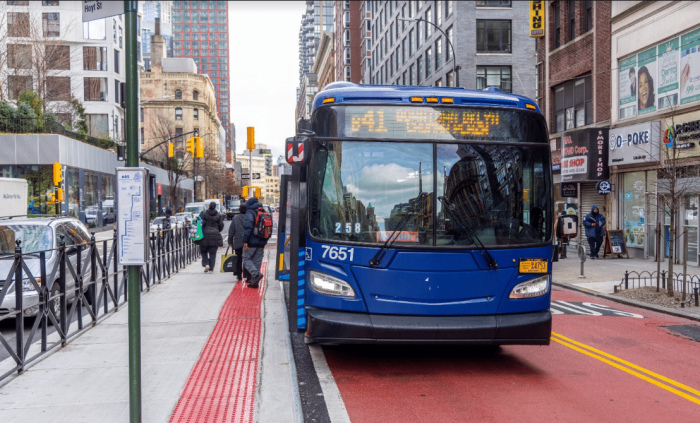By Karen Klein
In regards to the column by William Lewis (TimesLedger, Jan. 9), he neglects to mention what started the whole “War on the Police” as he calls it. The medical examiner ruled the death of Eric Garner by a police officer a homicide. We saw with our own eyes how that officer put a chokehold on Garner which is banned by the department. That officer murdered Eric Garner and we all saw it on video.
Now, I certainly don’t mean to imply that all or even most officers do this type of thing, but police brutality DOES exist and needs to be addressed and dealt with.
Can Mr. Lewis at least acknowledge this fact? If not, then there can be no moving forward.
We see on videos an officer shooting at a man who went into his car to retrieve his wallet when asked for his license, another on top of a woman continually punching her in the face as she tries to protect herself, so these incidents cannot be denied.
If I were a police officer, this would enrage me because it paints a terrible picture of the police, and promotes mistrust by the public of all police officers, which endangers other officers. The police do have a tough and dangerous job, but that is the job they chose. They cannot take that out on the public.
In Boston, two police officers were attacked by a group of six teens and they managed to end it by macing them, proving you don’t have to use deadly force to control a dangerous situation. I applaud those officers because they surely must have been scared in the moment, but they handled the situation in the best possible way. And those stupid teens are alive to share their story with others about what happens when you try to assault the police — about how much pain they experienced with their eyes burning and good, it serves them right. And no one can deny that those police officers actions were totally justified or use their actions against them.
Both the police and the public need to be constantly reminded that a police officer’s job is to apprehend someone suspected of committing a crime in order to bring them before a judge.
For the police, this means they do not mete out street justice — they are not the judge and jury. No matter how difficult or frustrating their job is, they are there to protect and serve the public. For the public, this means when a police officer directs you to do something — do it!
If they say they are going to arrest you, that is what is going to happen so there is no use in arguing, fighting and pleading your case to them. This will only make things worse for you. Remain quiet, comply and save it for the judge whose job is to determine your guilt or innocence.
If people could just do this, then many of these incidents could be avoided.
Karen Klein
Whitestone
































